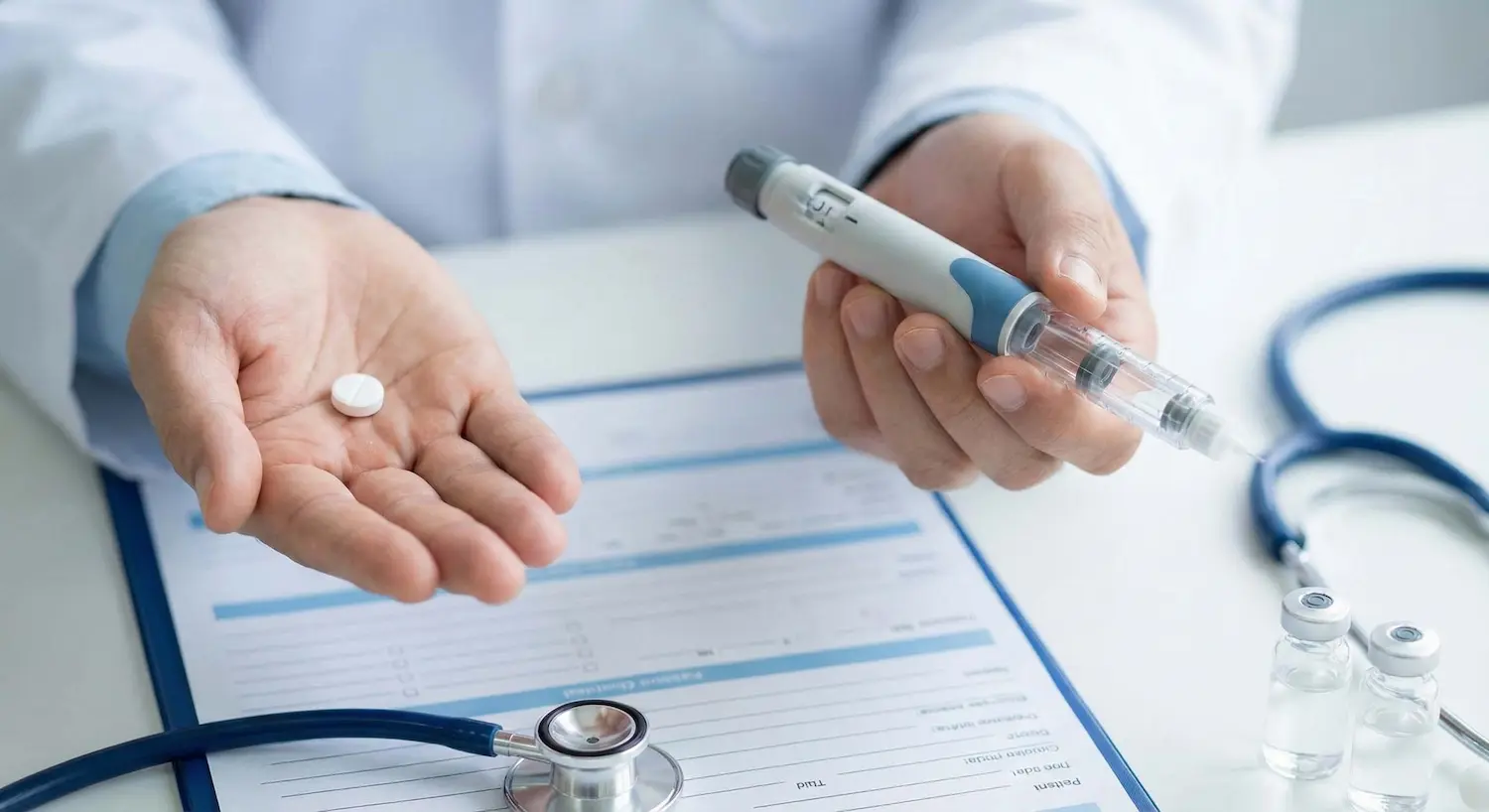
Type 2 Diabetes Mellitus is the most common type of diabetes. According to the National Institutes of Health, about 38.4 million Americans have diabetes, and 95% of the cases are type 2 diabetes. The condition mostly affects people 45 years and older, but more and more young adults, teens, and children are also developing it.
Diabetes mellitus is a chronic condition that happens when your body becomes unable to use insulin or produce enough of it to maintain normal glucose levels. Healthy glucose (blood sugar) levels are 72 to 99 mg/dl before meals and less than 140 mg/dl two hours after meals.If you have undiagnosed type 2 diabetes, your blood sugar levels consistently measure 126 mg/dl or above.
In type 2 diabetes, there are two major issues: either the pancreas fails to produce enough insulin, or the cells in the body don't respond properly to insulin.
Normally, your pancreas produces insulin, a hormone crucial for regulating blood sugar levels. However, when you have type 2 diabetes, your pancreas doesn't make enough insulin, or sometimes it doesn't work as effectively as it should. This means there's insufficient insulin to help glucose get into your cells, leaving too much sugar circulating in your bloodstream.
In some cases, the pancreas manages to produce insulin. However, the cells in your body may not respond to it properly. This means that even though insulin is available, the cells don't open up enough to let glucose in. As a result, sugar builds up in the bloodstream, resulting in high blood sugar levels, a hallmark of type 2 diabetes.

Type 2 diabetes is often sneaky – it can develop slowly over many years, and sometimes, you might not even notice any symptoms at all. That's why it's crucial to understand the risk factors. These are like warning signs that could indicate you're at higher risk of developing diabetes.
You should talk to your doctor if any of these risk factors sound familiar. Your doctor will perform a simple blood test to check your sugar levels and see if you're at risk of diabetes. Remember, catching it early can make a big difference in managing it effectively. With that said, some common type 2 diabetes symptoms include:
Diabetes Mellitus affects major organs, including kidneys, eyes, nerves, blood vessels, and the heart. Besides, its risk factors are also risk factors for other critical conditions. Therefore, it's crucial to manage and control blood sugar levels as this lowers the risk for diabetes mellitus and other medical complications like:
A healthy lifestyle choice is key to preventing type 2 diabetes. Even if you've been told you have insulin resistance or pre-diabetes, meaning your blood sugar levels are higher than normal but not yet in the diabetic range, there's a lot you can do to prevent it from progressing further. Here's how:

Diagnosing type 2 diabetes mellitus typically involves blood tests to measure fasting plasma glucose levels, oral glucose tolerance tests, and HbA1c levels. These tests indicate average blood sugar levels over the past few months. Screening guidelines recommend regular testing for those at high risk, including those with a family history of diabetes, obesity, or other risk factors.
Regularly monitoring blood glucose levels, blood pressure, cholesterol levels, and kidney function is essential for preventing diabetes-related complications. This includes screening for eye problems (retinopathy), nerve damage (neuropathy), kidney disease (nephropathy), cardiovascular disease, and foot complications. Early detection and proactive management can help minimize the risk of complications and improve long-term outcomes.
The quest for better treatments and advancements in diabetes care continues. Clinical trials help in this journey, as they pave the way for discovering new treatments and improving existing ones. If you're interested in contributing to advancing knowledge about type 2 diabetes and potentially accessing cutting-edge treatments, consider participating in our clinical trial.
Science 37 offers clinical trials to explore new avenues for managing type 2 diabetes. Join our clinical trial today and participate in the journey towards improved health and well-being for people with type 2 diabetes.


